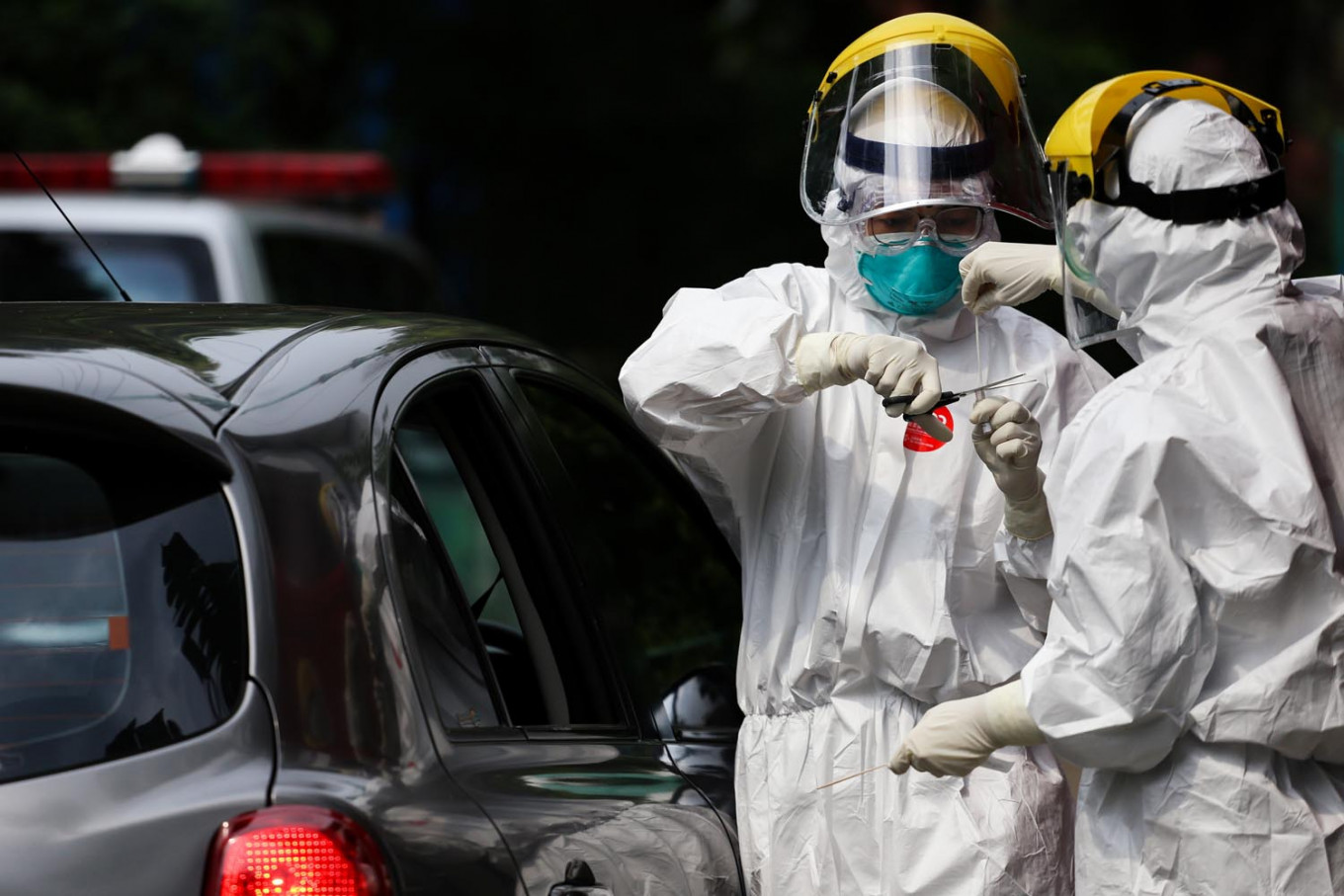Popular Reads
Top Results
Can't find what you're looking for?
View all search resultsPopular Reads
Top Results
Can't find what you're looking for?
View all search resultsCohesion in the wake of global health crisis
One thing is sure, that to make significant progress in tackling the pandemic there is a need for close collaboration at the national and international levels.
Change text size
Gift Premium Articles
to Anyone
A
s many governments announce a prolonged work from home period, I feel rather numb. I have been wondering how much more time is needed for us and the international community to put this COVID-19 pandemic to rest.
One thing is sure, that to make significant progress in tackling the pandemic there is a need for close collaboration at the national and international levels. First, in times of crisis, we need cohesion and clear direction which will provide better results with greater efficiency. Within our political system, such cohesion is required at all levels — national, regional and local.
Second, with sound international cooperation, countries will be in a better position to mitigate the dire impacts of this pandemic and its aftermath. If we fail to sustain international cooperation, we may end up in a new era of mutual distrust where international relations are dictated by self-centered interest.
There exists a close resemblance between the behavior of nation states and individuals. Although we are independent actors in our own right, we are willing to engage in cooperation or collaboration. Yet our behavior is also influenced by the uncertain, that of fear or anxiety.
Nowadays, anxiety is a common currency in global discourse on COVID-19. Each day we are swarmed with news of its spread and the human death toll. Social distancing and work from home have become part of a new lexicon in the efforts to prevent contagion.
Over the past few weeks, much has been discussed and written about this pandemic. Pundits have analyzed its impact through various lenses, based on their expertise. They have dwelled on how it would significantly affect the socioeconomic and political condition of any country.
Sadly enough, much of their analyses present a rather bleak scenario. It would be naïve to think that we can pass this turbulent time any sooner. As we look around, we have not seen any country winning completely in its fight against the virus and present a clean bill of health.
As mentioned by President Joko “Jokowi” Widodo, Indonesia will have to develop its own model and best practices, based on the characteristics of our nation. As an archipelago, Indonesia faces a different set of challenges vis-à-vis those three Asian countries.
As the government continues to perfect a strategy to confront the virus and mitigate its adverse impact, the call for all Indonesians to stand together and lend support grows louder. Indeed, this is not the time to second guess the government’s intention. Instead, it would be a perfect time for the nation to unite and join hands in fighting the pandemic and all its repercussions.
In the course of our history as a nation, Indonesia has been tested by numerous challenges. Some of them so severe, such as armed rebellions and the 1965 coup. Moreover, two decades ago we were struck with the 1997 Asian financial crisis.
The multi-dimensional crisis that followed the financial crisis paralyzed our nation. In those days, many were skeptical about whether Indonesia would survive the crisis and remain intact. Yet, we successfully overcame the challenges and have since come back stronger.
As we are about to celebrate 75 years of Indonesia’s independence, we should be proud of what we have achieved thus far, in terms of state building as well as our level of development and economic progress. All these are our assets as a nation.
Hence, building on what we have achieved thus far, we should be able to confront the pandemic in unison. We are not alone. The global community is also facing similar challenges and it is therefore expected for us all to seek international cooperation.
Needless to say, when a county is under pressure to tackle such a complex health situation — with so many constraints — cooperation among nations is somewhat shaken.
Scholars Henry Farrell and Abraham Newman wrote on a rather concerning trend among governments to restrict foreign access to pandemic supplies (Harvard Business Review, March 23, 2020). The two referred to export restrictions imposed by some governments on scarce resources needed to protect their citizens.
A question arises if this is an isolated case; an aberration from the general norms governing relations among nations. However, if this becomes a new norm, are we now witnessing a shifting paradigm in the international order?
A new paradigm that is less concerned with a rules-based international order that is founded, among other things, on a state’s commitment to open trade and the free flow of goods across borders. It is within this international order where we can expect more predictability in interstate relations.
A rules-based international order will lose its essence once countries become more self-centered and less forthcoming to international collaboration. If this trend continues then we will have to struggle in winning international commitment to deal with other strategic issues such as achieving the Sustainable Development Goals.
Bearing this in mind, President Jokowi and Foreign Minister Retno Marsudi continue to invoke the need for cooperation against the pandemic in conversations with international partners, including members of the G20.
From all the diplomatic efforts to tackle COVID-19, Indonesia has already established cooperation with countries, among others China, Japan, the Republic of Korea, India and Singapore to ensure the availability of medical supplies. Cooperation that is not limited to this immediate interest but also on how to thrive together post pandemic.
Finally, both at the national and global levels we must find an effective solution and not simply a respite. We need to instill confidence among the people, ease their weariness and bring back the rays of hope.











